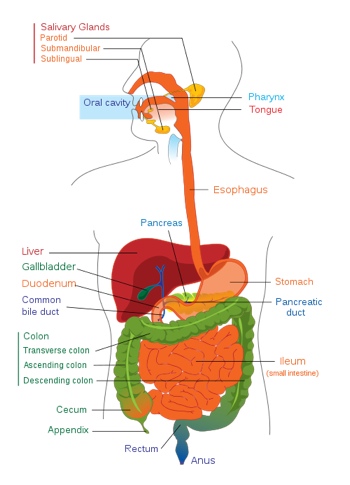
The Gastrointestinal System
last authored:
last reviewed:
Introduction
The gastrointestinal system is a collection of very different organs, all working towards digestion, absorption, and metabolism of food and water.

The mouth begins digestion, while the esophagus transports food to the stomach, where mechanical digestion occurs.
Control of gastrointestinal processes is under neural and hormonal influence. The bulk of digestion and absorption occurs in the small intestine, while the colon removes water and nutrients prior to defecation.
The pancreas secretes hormones into the small intestine to assist in digestion and also into the blood to regulate blood glucose levels.
The liver is the largest solid organ of the body and plays a critical role in carbohydrate storage, fat absorption and processing, plasma protein production, waste and toxin elimination, and many other roles.
The gall bladder stores and release bile into the small intestine.
Resources and References
www.GastroHep.com - British website full of pictures and videos
